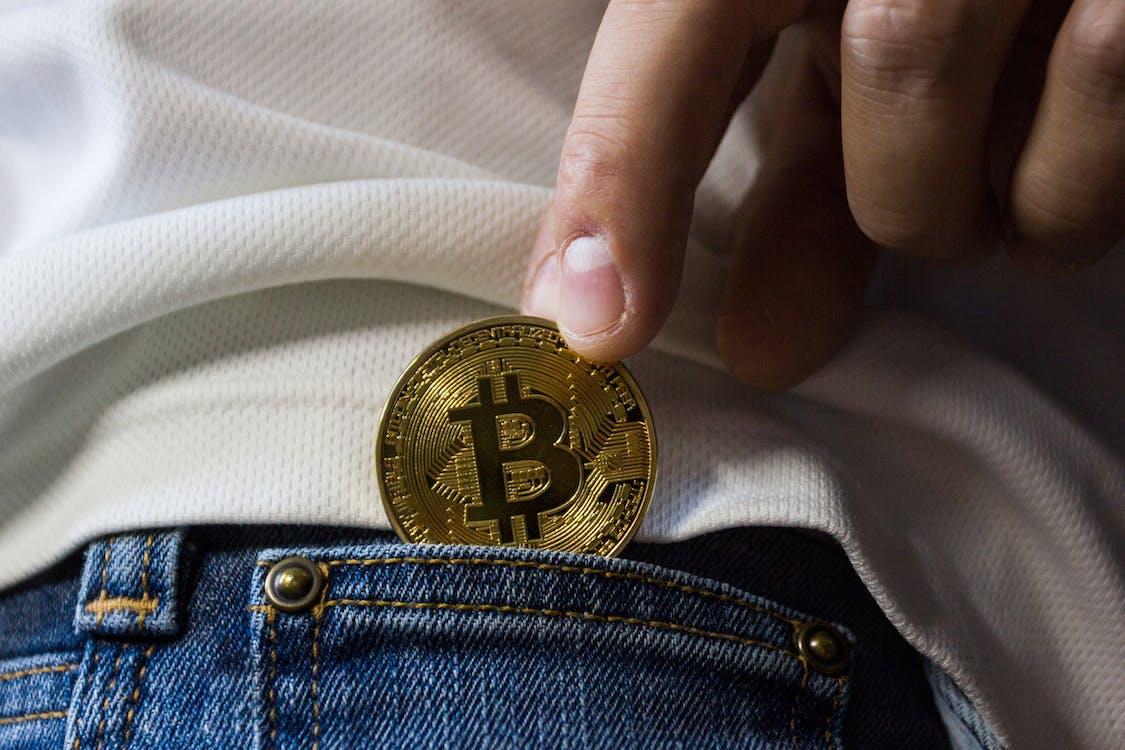Bitcoin, the revolutionary digital currency, is making waves in numerous industries worldwide. One particular sector that has seen an immense impact is the gaming industry. From online gaming to in-game purchases, Bitcoin has transformed the way players engage with games, enhancing the overall experience. In this article, we will delve into the basics of Bitcoin, explore the intersection of Bitcoin and gaming, analyze the impact of Bitcoin on the gaming industry, speculate on its future, and examine global perspectives on its adoption.
Understanding the Basics of Bitcoin
The first step in comprehending the impact of Bitcoin on the gaming industry is to understand the fundamentals of this digital currency.
Bitcoin, often referred to as the pioneer of cryptocurrencies, has revolutionized the way we perceive and use money. It was created by an anonymous individual or group known as Satoshi Nakamoto, whose identity remains a mystery to this day. Unlike traditional currencies, Bitcoin is not regulated or controlled by any central authority, such as a government or financial institution.
Bitcoin’s decentralized nature ensures that transactions are transparent, secure, and cannot be altered or manipulated. This allows for a level of trust and security that is highly desirable, especially in the online gaming space. With the rise of virtual economies within games, Bitcoin has become a popular choice for in-game transactions.
The Concept of Bitcoin
Bitcoin operates on a technology called blockchain, which is essentially a distributed ledger that records all transactions made with the cryptocurrency. This blockchain is maintained by a network of computers known as miners. These miners verify and record transactions on the blockchain, ensuring their validity.
Imagine a giant digital ledger that keeps track of every Bitcoin transaction ever made. Each transaction is encrypted and added to a block in the blockchain. Miners compete to solve complex mathematical puzzles to add blocks to the blockchain and, in return, are rewarded with newly created Bitcoins. This process, known as mining, not only secures the network but also regulates the supply of Bitcoins.
Bitcoin can be acquired through various methods, such as mining, purchasing from exchanges, or receiving it as payment. Once obtained, users can store their Bitcoin in digital wallets, which can be accessed through desktop or mobile applications. These wallets provide a secure way to manage and transfer Bitcoin.
How Bitcoin Works
Bitcoin transactions involve the transfer of value from one digital wallet to another. When a user initiates a transaction, it is broadcasted to the network of miners for verification. The miners then validate the transaction by confirming that the sender has sufficient funds and that the transaction meets the necessary criteria.
Once a transaction is validated, it is bundled with other transactions into a block. This block is added to the blockchain, creating a permanent record of the transaction. The decentralized nature of the blockchain ensures that no single entity has control over the entire network, making it resistant to censorship and tampering.
One of the key advantages of Bitcoin is its pseudonymous nature. While transactions are recorded on the blockchain, the identities of the parties involved are not directly linked to their Bitcoin addresses. This provides a certain level of privacy and anonymity, which can be particularly appealing in the gaming industry where users may prefer to keep their identities concealed.
Furthermore, Bitcoin transactions are typically faster and more cost-effective compared to traditional banking methods. With traditional payment systems, cross-border transactions can be slow and expensive due to intermediaries and currency conversion fees. Bitcoin eliminates these barriers, allowing for seamless and efficient global transactions.
As Bitcoin increasingly gains mainstream acceptance, its influence on the gaming industry is becoming more pronounced, especially when considering the future with Quantum ai. Bitcoin facilitates in-game purchases and enables cross-border transactions, potentially revolutionizing interactions within games and virtual economies. The integration of Quantum AI could further enhance these capabilities, offering faster, more secure transactions and innovative ways to manage virtual assets, shaping the future landscape of gaming and digital commerce.
The Intersection of Bitcoin and Gaming
The inherent qualities of Bitcoin have sparked a fascinating overlap with the gaming industry, leading to a multitude of benefits and opportunities.
The Role of Bitcoin in Online Gaming
Online gaming platforms have embraced Bitcoin as a means of payment. Bitcoin offers several advantages over traditional methods, such as credit cards or bank transfers. Transactions with Bitcoin are generally faster, have lower fees, and provide players with a greater degree of privacy.
Furthermore, Bitcoin transactions bypass intermediaries, allowing players to directly control their funds. This eliminates the risk of payment disputes or chargebacks, creating a more seamless and secure gaming experience.
Bitcoin and In-Game Purchases
In addition to its role as a payment method, Bitcoin has also revolutionized the world of in-game purchases. Traditionally, players would use fiat currency to buy virtual goods or upgrades within games. However, with the introduction of Bitcoin, players have a decentralized and borderless method of acquiring in-game assets.
Furthermore, blockchain technology enables the creation of unique, non-fungible tokens (NFTs). These NFTs can represent rare items or collectibles within games. The scarcity and authenticity provided by NFTs add a new layer of value to in-game purchases, creating unique and immersive gaming experiences.
The Impact of Bitcoin on the Gaming Industry
Bitcoin’s integration into the gaming industry has had far-reaching consequences, enhancing the overall gaming experience and transforming the economy of gaming.
Enhancing Gaming Experience with Bitcoin
The seamless nature of Bitcoin transactions has made in-game purchases more convenient and accessible for players. With traditional payment methods, players often face barriers such as region restrictions or high transaction fees. Bitcoin eliminates these obstacles, allowing gamers from all corners of the globe to engage in a shared virtual economy.
Furthermore, the decentralized nature of Bitcoin has paved the way for innovative gaming platforms that operate on blockchain technology. These platforms leverage smart contracts to ensure fairness and transparency, enabling players to trust the outcomes of games without relying on intermediaries.
Bitcoin and the Economy of Gaming
Bitcoin has introduced new economic models within the gaming industry. Players can now earn Bitcoin by participating in certain games or by trading virtual assets with other players. This has created opportunities for gamers to monetize their skills and investments in ways that were previously impossible.
The introduction of Bitcoin has also opened up new avenues for game developers and publishers. By accepting Bitcoin for in-game purchases, developers can tap into a global market without the need for traditional banking systems. This can significantly reduce costs and enable direct monetization of gaming content.
The Future of Bitcoin in Gaming
The potential of Bitcoin in gaming is limitless, and industry experts are speculating on what the future holds for this innovative combination.
Predicted Trends for Bitcoin in Gaming
As Bitcoin adoption continues to grow, more game developers are expected to integrate Bitcoin into their platforms. This will likely lead to an increase in blockchain-based games and virtual economies, with more players and developers reaping the benefits of this transformative technology.
Moreover, the rise of NFTs in gaming is expected to gain further momentum. These digital assets, backed by the security and authenticity of blockchain technology, have the potential to reshape the concept of ownership within the gaming industry.
Potential Challenges and Solutions for Bitcoin in Gaming
While the future seems promising, there are still challenges that Bitcoin faces in its journey to reshape the gaming industry. Scalability, transaction speed, and regulatory hurdles are just a few of the obstacles that need to be overcome.
However, the Bitcoin community is actively working on solutions such as layer-two scaling solutions and regulatory frameworks that balance innovation with consumer protection. With continued advancements and collaborations, these challenges can be addressed, paving the way for Bitcoin’s widespread adoption in gaming.
Global Perspectives on Bitcoin in Gaming
Bitcoin’s impact on the gaming industry is a global phenomenon, with different regions embracing the digital currency in varying degrees.
Adoption of Bitcoin in Gaming Across Different Regions
North America and Europe have been at the forefront of Bitcoin integration in gaming. Online gaming platforms and video game marketplaces in these regions have readily embraced Bitcoin as a payment method and are exploring the potential of blockchain technology.
In Asia, countries like South Korea and Japan have seen significant Bitcoin adoption in gaming. Bitcoin has become a prominent means of payment for popular multiplayer online games, fostering a vibrant gaming ecosystem.
Regulatory Landscape for Bitcoin in Global Gaming
Regulatory frameworks for Bitcoin in gaming vary across different regions. While some countries have embraced cryptocurrencies and blockchain technology, others have taken a more cautious approach due to concerns over money laundering and fraud.
Standardizing regulations and fostering an environment that encourages innovation while safeguarding users is crucial for the worldwide adoption of Bitcoin in gaming. Collaboration between industry stakeholders, regulators, and policymakers is vital in establishing a balanced and forward-thinking regulatory landscape.
Wrapping Up
In conclusion, Bitcoin’s impact on the gaming industry is undeniable. From revolutionizing payment methods and in-game purchases to introducing innovative economic models and trustless gaming platforms, Bitcoin is reshaping the gaming landscape worldwide.
With the potential for further advancements and widespread adoption, the future of Bitcoin in gaming looks promising. As gamers and developers continue to explore the full potential of this digital currency, the gaming industry will be forever transformed.





